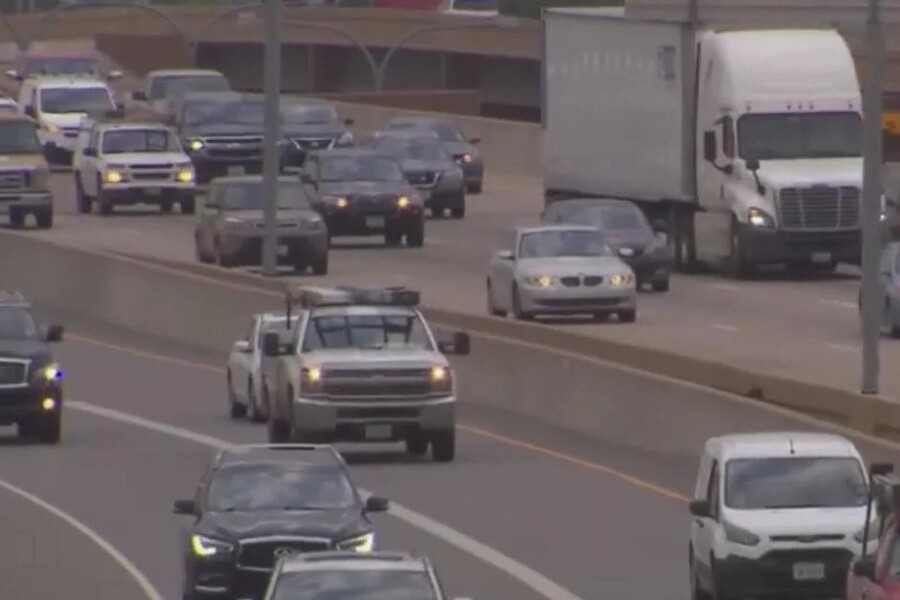McKinney, TX — A significant change in Texas vehicle safety regulations has raised concerns among drivers, auto shop owners, and safety advocates. As of January 1, non-commercial vehicles in the state are no longer required to undergo annual safety inspections before registration, sparking a debate about the potential impact on road safety.
Alexi Kavrazonis, owner of Wash Guys Lube Auto Center in McKinney, has long conducted state inspections, completing between 25 and 40 inspections daily. For him, these inspections were a critical checkpoint to ensure vehicles were roadworthy and safe for Texas roads. The inspections covered crucial aspects such as tires, brakes, lights, and mirrors—basic components that affect a vehicle’s ability to operate safely.
“The safety portion of your inspection checks your tires, your brakes, your lights, your mirrors to make sure that your car is safe for driving on the road,” Kavrazonis explained. Now, with the safety requirement removed, he expressed frustration over what he views as a lapse in prioritizing public safety. “I didn’t like it,” Kavrazonis said. “Not for the seven dollars that it cost the consumer, but for the safety concern.”
Although the safety inspections are no longer required, emissions tests remain mandatory in the state’s 17 largest counties, including Dallas, Tarrant, and Collin counties. Emissions testing ensures vehicles comply with pollution control standards but does not address mechanical safety issues. For Kavrazonis, this creates a misstep in prioritizing what matters for public safety. “You’re only checking for the pollution. They’re only caring if the car is polluting the air, but in the meantime, they’re forgoing the safety of every driver on the road,” he said.
Kavrazonis is particularly concerned about the implications of this policy shift on overall road safety. Without mandatory safety checks, he fears there could be more accidents caused by mechanical failures. “You could have a car next to you with bald tires. Especially when it’s raining, they won’t be able to stop in time. There are a lot of concerns,” he added.
State Senator Bob Hall, who sponsored the legislation, dismissed such concerns, arguing that mandatory inspections were outdated and unnecessary. “It has no purpose and has no useful benefit,” Hall stated, adding, “Windshield wipers don’t cause accidents, and it’s a stretch to say a turn signal would cause an accident.”
Under the new law, the responsibility for vehicle safety now falls entirely on drivers. Kavrazonis emphasized the importance of individuals taking proactive steps to ensure their vehicles are safe and roadworthy. “The onus of responsibility is now on every single driver,” Kavrazonis said. “If they have a broken tail light, their signal lights don’t work, or their tires are bald, they could get pulled over by the police.”
While the change reduces state oversight, it could lead to increased enforcement by law enforcement officers tasked with identifying vehicles with visible safety issues. This shift in responsibility is seen as both a simplification of the registration process and a potential gap in ensuring vehicle safety standards.
The Insurance Council of Texas, however, has reassured drivers that the change is unlikely to impact insurance rates. According to the council, inspection records were not previously considered in premium calculations, so costs to drivers are expected to remain stable.
It’s worth noting that the new law does not apply to commercial vehicles, which are still required to undergo annual safety inspections. This distinction underscores a division in safety standards between non-commercial and commercial vehicles, further fueling the debate on whether safety should remain a state-mandated concern.
As Texas transitions to this new framework, opinions remain divided. Safety advocates worry the absence of inspections could lead to an increase in accidents caused by mechanical failures, while supporters of the law believe it simplifies the registration process and empowers drivers to take greater responsibility for their vehicles.
Kavrazonis remains skeptical about the long-term impact. “It’s not about the money; it’s about ensuring that every driver, passenger, and pedestrian is safe,” he said. For now, Texas drivers will need to adapt to this new era of personal responsibility, with the full impact of the law becoming clear in the months and years to come.
